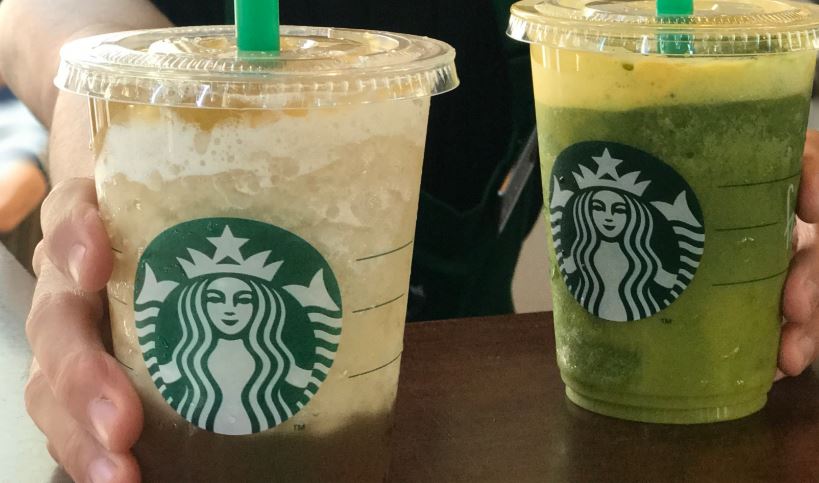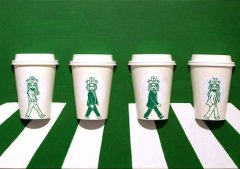Why can't Starbucks find a strong competitor in China?

For professional baristas, please follow the coffee workshop (Wechat official account cafe_style)
China's Wanda is openly challenging Disney; Uber is spending 2 billion dollars against DiDi; Adidas has been fighting Li Ning and Anta for years; and Apple is playing games with several of China's rising competitors (Xiaomi, Huawei, Oppo, etc.). One phenomenon always happens in China: a successful international company is bound to trigger fierce competition in the domestic market.
So why doesn't Starbucks have strong competitors in China? For the past few months, I have been asking others for advice on this question, but I haven't got a good answer. This is strange.
Starbucks has entered the Chinese market since 1999 and has about 2400 stores so far. Over the years, they have accounted for almost most of the market share of China's retail coffee industry. Starbucks CEO Howard Schultz also recently announced the opening of 500 new stores a year. This will enable Starbucks to have 5000 stores in China by 2020.
In addition, during a Starbucks conference call on November 3, 2016, Schultz revealed that "our latest store type in China has created the highest single store turnover, profit margin and profitability in Starbucks history."
Thus it can be seen that Starbucks has a large market share, rapid growth and huge profits in China. Although they break the number one rule for foreigners to do business in China: no matter how good they are, keep a low profile.
Starbucks does face some small competitors in China. These competitors include Kashijia from the UK (which plans to open 900 stores in China by 2020), coffee from South Korea to accompany you, fragrant coffee from Los Angeles, and coffee from Taiwan (but it is more catering). In addition, there is Pacific Coffee from Hong Kong, most of which has been acquired by China Resources Group.
You can also think of family convenience stores and 7-11 as competitors. A lot of coffee must have been sold there, and they have a wide range of coverage. McDonald's with McCoffee is one of them. But I think the above two categories can only be regarded as an extension.
Generally speaking, I can't think of any strong competitors for Starbucks in China. I don't see a company like China Mobile, Alibaba, SUNING or Wanda competing with Starbucks for customers.
I asked a lot of people around me, and here are the answers I've collected so far.
The first explanation: Starbucks is the forerunner, and the formation of the market is relatively slow.
Nestl é entered China in 1990 and Starbucks in 1999. But even in 2007 or even later, people were not sure whether Chinese consumers would drink coffee. I remember people always telling me, "you are a foreigner and you don't understand China." We prefer tea to coffee. "
It took a long time for coffee to become popular in China. And even today, drinking coffee is a rarity. In 2013, everyone in China drank four cups of coffee a year. By contrast, Americans have 441 cups (more than 1000 cups in Norway, which also puzzles me). Coffee culture develops slowly in China.
The disposable income of Chinese consumers has grown for a long time to reach the level at which they can afford to buy coffee like Starbucks. Even today, Starbucks' price in China (about 30 yuan for a latte) is much more expensive, based on the ratio of the price of Starbucks coffee to purchasing power in the United States.
So it's important that Starbucks became the first crab eater, with a long-term pursuit of growing in a slowly rising market. Compared with Pepsi, Master Kang, Apple and other brands, Starbucks is not a rapidly successful business case.
The second explanation: Starbucks' brand and size give it an advantage in real estate.
The success of the retail coffee industry depends on the right location. Even if consumers develop a certain degree of brand loyalty, they don't usually walk three blocks to enjoy Starbucks if there is a Ka family just across the street. For all, it is very important to occupy places with high attention and high flow of people.
Starbucks is much larger than its competitors, which means it has more stores, more customers and higher brand recognition. This advantage of scale gives Starbucks an advantage in getting the best location. It spends much more on real estate than its smaller competitors because it has more cash and customers and more brand power. Its stores can be opened in a busy shopping mall instead of on street corners. It can be opened at the entrance to the mall instead of on the third floor. It is more difficult for smaller companies to win locations with higher attention, higher traffic and higher prices.
Occupy a higher flow and attention of the location, help to improve sales and brand awareness, and then increase the local scale advantage of the store. This is a virtuous circle (to some extent).
The essence of this explanation is that although China's coffee market looks large and fragmented, when you mark them on the map, they are actually quite concentrated. Competing with Starbucks for these optimal locations is much harder than it seems.
The third explanation: senior business people in China just don't like coffee.
Even if this is true, I still don't see why China doesn't have a strong competitor opening a coffee shop. In China, there are more than 160 cities with a population of more than 1 million. By 2025, that number will rise to 220. So, even today, new marketers can still get a lot of space in some areas such as Chongqing.
What prevents companies like China Resources from opening 500 coffee shops? Why didn't Wanda take over its more than 100 coffee shops in Wanda Square? This is what Wanda is currently doing in hotels and cinemas. Why don't these big brothers enter the market?
Could it be because senior business people in China grew up in an era of drinking tea? Have they never had coffee before? Maybe Wang Jianlin doesn't like coffee?
This explanation is consistent with the fact that more than 70% of China's instant coffee market, which accounts for more than 80% of the coffee market, is occupied by another foreign company, Nestl é. In fact, the same is true of the energy drink market, with more than 70% of the market share occupied by Red Bull. Maybe caffeine is a blind spot for Chinese business leaders?
The last explanation: coffee is just a fad.
This explanation worries me a little. To some extent, retail coffee in China is likely to be just a fad. In the eyes of most Chinese, having a cup of coffee with friends in a good environment is still a relatively new experience. For most people, this is only a trend that has sprung up in the past five years. It is also a status symbol. However, Chinese consumers' attitudes towards things that are popular these days are notoriously unpredictable. Will this market shrink by 20%? What will happen if consumers lose interest in the new century? I think it's absolutely possible. Maybe the reason why big companies don't get involved in the market is that they can't see the long term.
To be honest, I don't know why Starbucks doesn't have strong competitors in China. It seems strange to me. So I really want to know your opinions. You are welcome to share your views with me.
Important Notice :
前街咖啡 FrontStreet Coffee has moved to new addredd:
FrontStreet Coffee Address: 315,Donghua East Road,GuangZhou
Tel:020 38364473
- Prev

How do Starbucks and Ford motivate their employees to improve their performance?
Professional barista communication please follow the coffee workshop (Wechat official account cafe_style) when employees are not only working, but can be motivated by their work, the organization can achieve a real breakthrough. Motivated employees are more productive and, in turn, motivate those around them to pursue higher goals. Our research shows that although anyone can
- Next

Think deeply: why did Starbucks become a money printer?
Professional baristas exchange please follow the coffee workshop (Wechat official account cafe_style) Starbucks is ten times more likely to make money from technological innovation in mobile payments. Good business model + replicability = high valuation premium. Today, we think more about the special features of Starbucks from the perspective of business model, which can also enlighten the research of our catering industry. Starbucks is a model.
Related
- What documents do you need to go through to open a coffee shop? coffee shop coffee shop certificate processing process
- How to purchase Coffee beans in small Cafe how to choose a suitable supplier for domestic Coffee supply Company
- How to drink Starbucks Fragrance White Coffee? how to make Australian White Coffee? what Italian coffee beans are recommended?
- The Story of Flora Coffee: the name of Flora Coffee Bean and the implication of the Flowers on Florna Coffee
- How much does a cup of coffee cost? How much is the profit of a cup of coffee? What is the profit of the coffee shop in a year?
- Yunnan small Coffee, known as "fragrant Coffee", introduces the characteristics of Alpine Arabica Coffee producing areas in Yunnan, China
- 2023 latest Starbucks full menu price list how much is a cup of Starbucks coffee what is better to drink the most popular hot and cold drinks recommended
- Starbucks different kinds of Coffee Price list Starbucks menu 2023 Top Ten Best drinks in Starbucks
- Starbucks Spring praise Comprehensive matching Coffee Bean theme Story Packaging implication and taste description
- The cost of a cup of coffee latte American coffee cost price and selling price

